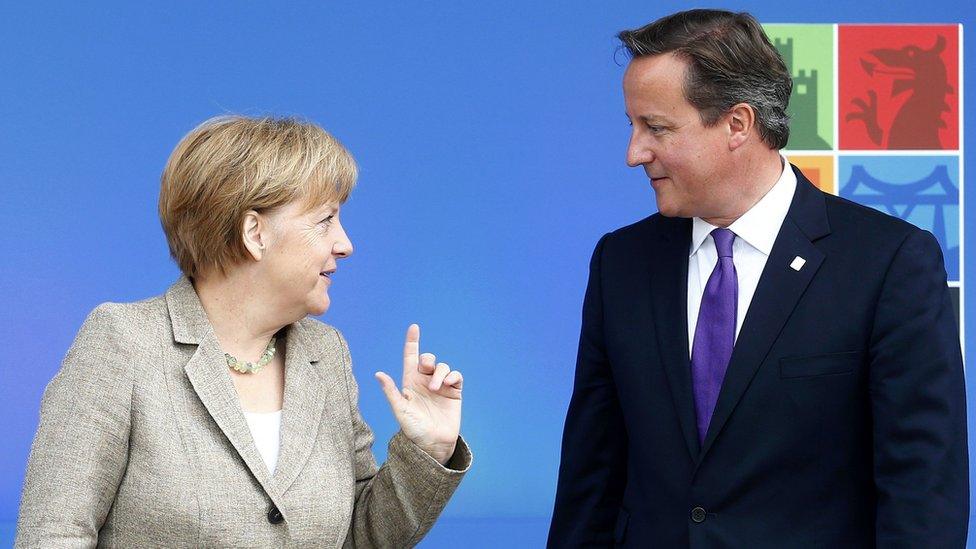Germany struggles to cope with asylum surge
- Published
Syrians flee to German refugee camp as Jenny Hill reports from Bavaria
The old army barracks in Munich is a bleak place. Under a grey sky, uniform concrete buildings line a main street, fenced off at either end with barbed wire.
This is one of a number of refugee camps in Germany, set up in response to an overwhelming influx of people fleeing from violence in countries such as Syria.
Ministers here are frustrated. Germany and Sweden are among a handful of countries taking responsibility for asylum seekers arriving in Europe. Other member states could and should be doing more.
A pale-faced man wheels a large red suitcase along, followed by his wife and children. As the youngest boy howls a tantrum, the exhausted family joins a stream of other people pushing prams, bikes and luggage.
Officially the barracks can accommodate 1,200 people. Over the summer it housed 2,000.
We meet a family who invite us into the cramped room they now share with strangers.
Between the bunk beds two little boys play with a toy robot that has seen better days. Their parents Basem and Zainab tell us that if they had stayed in Syria the family would have died. Even so, the family's journey to escape nearly killed them, too.
"We took a small boat to Italy," Basem tells me. "For nine days we were at sea, the waves were really high and we ran out of water."
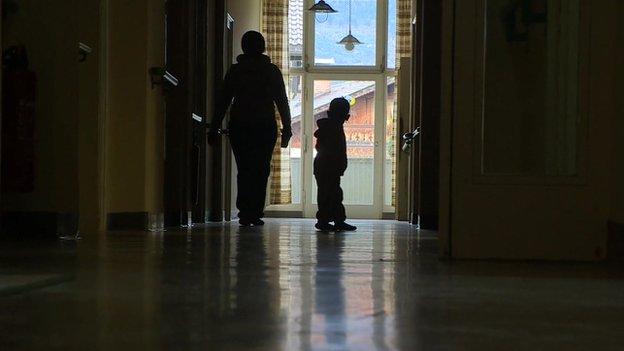
The local authorities are preparing for an even greater influx next year
Germany receives more refugees and asylum seekers than any other EU country.
Numbers have risen sharply in recent years. The government here estimates that up to 200,000 people will seek asylum in Germany this year. They have been housed in schools, tents, warehouses, even empty shops. In Berlin the authorities plan a "city" of shipping containers.

Asylum applications in Europe Jan-July 2014
Germany: 94,200
Sweden: 41,250
France 36,680
Italy 30,755
UK: 17,505
Top four countries account for 70% of all applications
Germany expects 200,000 for 2014, up from 127,000 in 2013
Source: Eurostat and German interior ministry

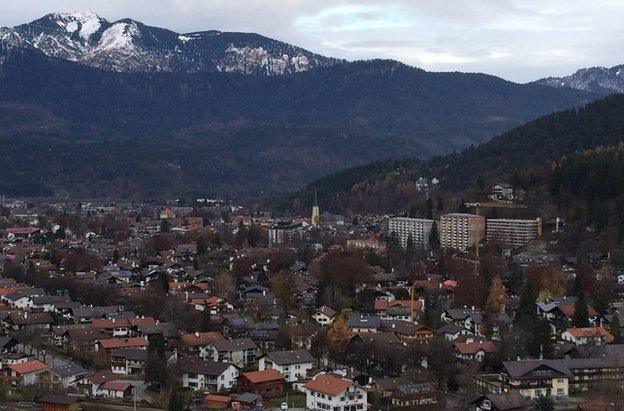
The border town of Garmisch is now home to 300 asylum seekers
But that is just the start. Long term, refugees must be given a home, asylum seekers somewhere to stay while their applications are processed. It can take years - which is why the border town of Garmisch is changing.
An hour's drive south of Munich, it is a picturesque place - a cluster of red-roofed houses and church spires surrounded by snow-capped mountains.
Three hundred asylum seekers now live here. Most have been sent here from camps in the bigger cities, but a few arrived on foot over the mountains from Austria.
Financially, refugees are the responsibility of each German state, which must provide accommodation, food, medical care and clothing.
On top of that, each adult is given €130 (£102; $160) a month. Bavaria alone expects to spend €1bn on refugees and asylum seekers over the next two years. That is roughly 1% of its total budget for the same period.
Under the twinkling Christmas lights on the main street I wonder how this community feels about the newcomers.
"There's no question we must take them in and try to help them," one woman here tells me. "But there are a lot who try to cheat the system."
Another says it is hard for the refugees, but hard for residents as well. "We have space, but not that much space," she complains.
You hear the word "tolerance" a lot in Germany.
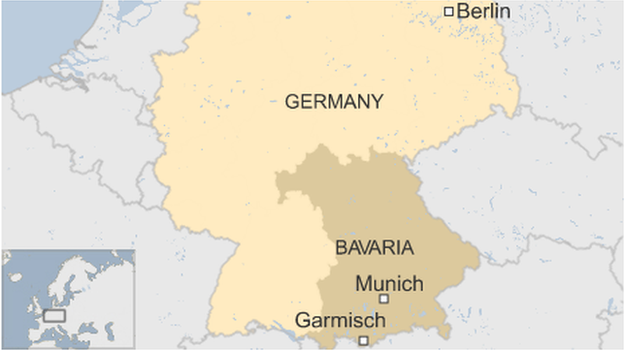
Attitudes are shaped by the memory of World War Two atrocities. Even so, there have been a number of minor protests outside proposed refugee centres. And, while most people tell us they want to help, there is a sense that Germany is doing more than its fair share.
Last month, Interior Minister Thomas de Maiziere urged other EU member states to shoulder their responsibility. "Only four or five EU countries take 75% of all refugees (in Europe)," he said.
In the Middle East the refugee influx is more dramatic - more than three million Syrian refugees are being sheltered in neighbouring Lebanon, Jordan and Turkey.
The German government has now promised financial support to help the country's regions with the influx of refugees. Over the next two years €1bn will be divided between the 16 states.
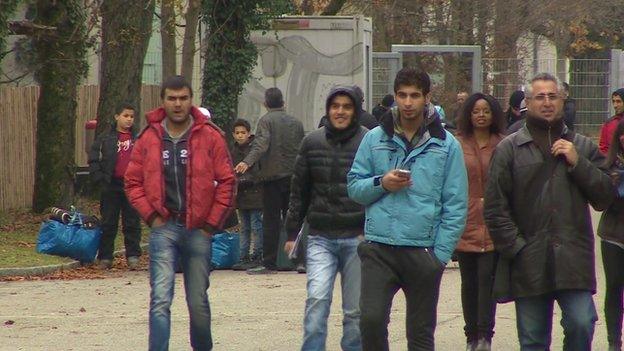
Germany takes in more asylum seekers than any other EU country
Back at the barracks in Munich I meet a harassed-looking man, Florian Schlaemmer, who is a spokesman for the local government here.
As we speak he is accosted by a young family wanting to know where they should register. He points them towards one of the concrete buildings and tells me that the camp is preparing contingency plans.
Next summer, he says, they must be ready for a worst case scenario of 500 to 1,000 new arrivals a day.
Does he see an end to all this, I ask.
"Actually no," he replies. "Just look at the world. We have Syria. We have huge problems in Africa. That's why these people are arriving in Munich."
And Germany's position is clear. In the words of Thomas de Maiziere, "We can't go on like this."
- Published3 November 2014

- Published2 September 2014

- Published3 November 2014
